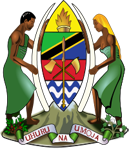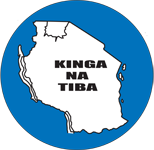
MINISTRY OF HEALTH
Neglected Tropical Diseases Control Program Tanzania

CNTD
Last edit: 2016-04-19 08:29:41.
CNTD is now known as FPSU. This change comes with a new Director, Professor Charles Mackenzie as well as wider changes at the Liverpool School of Tropical Medicine (LSTM) which has created an overarching NTD group to promote the wide range of NTDs support by the School. As part of the CNTD umbrella, the name has changed to Filarial Programmes Support Unit (FPSU). This change illustrates the NTD focus areas of lymphatic filariasis, onchocerciasis, and loaloa, and the objectives and support remain the same. The main objective is to aid in implementing lymphatic filariasis elimination through interrupting transmission (MDA) and patient care (MMDP) in twelve countries located in Africa and Asia. The main goals in relation to the program success are achieved by implementing specific WHO, FPSU, and DFID requirements. The primary activities are identifying patient number, availability and access of care, as well as quality of care. Secondary activities revolve around identifying aspects that will provide and verify sustainability within the program.Activities supported in Tanzania for fiscal year 2014/15 took place in Dar es Salaam. The primary activity was MDA with 4.35 million people treated for LF. MDA implementation was accompanied by best practice activities which included MDA support through coverage survey and mapping distribution points across the region. In addition, utilization of the Measure SMS mobile phone survey tool in Temeke district identified 807 patients with lymphoedema, 1,507 hydrocele patients and 183 patients with both conditions in a population of 1.5 million. From these activities, lessons learnt include the need to improve MDA coverage survey methods in highly mobile urban populations. Understanding the distribution at individual distribution points as well as verifying this through an accurate coverage survey will enable future MDAs in the region to achieve better coverage. Secondly, the high number of patients identified indicates the need for MMDP services and improve verification methods within the Region.
As a way forward we are committed to provide continued support of MDA in Dar es Salaam in addition to the following activities: Firstly, hydrocele camps for an estimated 1000 patients in Temeke; secondly, mapping of the remaining two districts in Dar es Salaam in order to determine the appropriate strategy for providing hydrocele surgeries within the region;thirdly, aid in the development of a national MMDP strategy that is in sync with the WHO and DFID requirements and finally, upscale MMDP implementation activities.
Read more.........